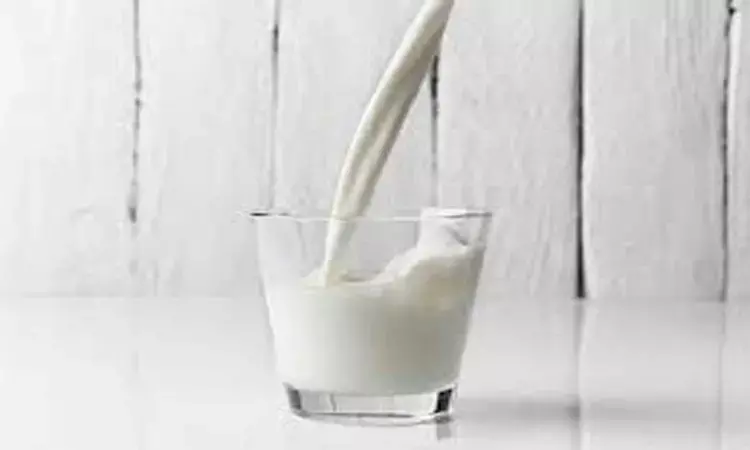- Home
- Medical news & Guidelines
- Anesthesiology
- Cardiology and CTVS
- Critical Care
- Dentistry
- Dermatology
- Diabetes and Endocrinology
- ENT
- Gastroenterology
- Medicine
- Nephrology
- Neurology
- Obstretics-Gynaecology
- Oncology
- Ophthalmology
- Orthopaedics
- Pediatrics-Neonatology
- Psychiatry
- Pulmonology
- Radiology
- Surgery
- Urology
- Laboratory Medicine
- Diet
- Nursing
- Paramedical
- Physiotherapy
- Health news
- Fact Check
- Bone Health Fact Check
- Brain Health Fact Check
- Cancer Related Fact Check
- Child Care Fact Check
- Dental and oral health fact check
- Diabetes and metabolic health fact check
- Diet and Nutrition Fact Check
- Eye and ENT Care Fact Check
- Fitness fact check
- Gut health fact check
- Heart health fact check
- Kidney health fact check
- Medical education fact check
- Men's health fact check
- Respiratory fact check
- Skin and hair care fact check
- Vaccine and Immunization fact check
- Women's health fact check
- AYUSH
- State News
- Andaman and Nicobar Islands
- Andhra Pradesh
- Arunachal Pradesh
- Assam
- Bihar
- Chandigarh
- Chattisgarh
- Dadra and Nagar Haveli
- Daman and Diu
- Delhi
- Goa
- Gujarat
- Haryana
- Himachal Pradesh
- Jammu & Kashmir
- Jharkhand
- Karnataka
- Kerala
- Ladakh
- Lakshadweep
- Madhya Pradesh
- Maharashtra
- Manipur
- Meghalaya
- Mizoram
- Nagaland
- Odisha
- Puducherry
- Punjab
- Rajasthan
- Sikkim
- Tamil Nadu
- Telangana
- Tripura
- Uttar Pradesh
- Uttrakhand
- West Bengal
- Medical Education
- Industry
Frequent milk intake tied to lower risk for gallstones

China: A recent study published in BMC Public Health has revealed an association between milk consumption and the incidence of cholelithiasis disease in the US adult population.
The researchers reported that milk intake reduced the risk of cholelithiasis, or gallstone disease, in both women and men. They concluded that milk consumption could be a low-cost, effective method for preventing it.
"Our study provides a basis for dietary interventions against gallstones, but there is a need for prospective studies to verify the results," Yahui Liu, the First Hospital of Jilin University, Changchun, Jilin, People’s Republic of China, and colleagues wrote.
Cholelithiasis is a common digestive system disease that imposes a major burden on society and patients. Investigating the relationship between dietary factors and the risk of cholelithiasis can provide a basis for disease prevention. There have been limited previous studies on milk intake and cholelithiasis incidence. Therefore, the researchers aimed to assess the association between milk consumption and cholelithiasis incidence in males and females.
For this purpose, the researchers selected 14,722 adults (≥ 18 years old; 7,147 men and 7,575 women) from NHANSE (National Center for Health Statistics) 2017–2020, and collected general characteristics of patients in the database, such as gender, age, body mass index (BMI), and race, as well as dietary information (milk intake).
The outcome event was the occurrence of cholelithiasis, and the group was divided into cholelithiasis and non-cholelithiasis groups according to the outcome event. Logistic regression models were used in generalized linear model (GLM) functions, controlling for lifestyle, demographic, and dietary factors, to estimate the association between milk consumption and cholelithiasis incidence in females and males.
The researchers reported the following findings:
- The overall weighted prevalence of cholelithiasis was 10.96%, with 15.18% and 6.48% prevalence in females and males, respectively.
- Compared to infrequent milk intake, frequent milk intake (once a week or more) in females was associated with reduced cholelithiasis risk (OR 0.74).
- Daily milk intake in males was also related to lower cholelithiasis risk (OR 0.69–0.82).
- As adjusted variables increased in the models, predictive performance was improved (AUC 0.711 in females, 0.730 in males).
For the first time, the researchers estimated the association between milk intake and cholelithiasis incidence using a nationally representative sample.
The study suggests that compared to infrequent milk intake, infrequent milk intake (once a week or more) in females was tied to reduced risk of cholelithiasis. In males also, the daily milk intake was related to a lower risk of cholelithiasis.
The investigators note that the main treatment for cholelithiasis is still surgery, but in the long run, disease prevention is more significant through a low-cost, simple and feasible method of dietary modification.
"More studies are required in the future to verify the findings and to understand the pathogenesis of cholelithiasis formation through diet to achieve better prevention," they concluded.
Reference:
Jia, F., Ma, Y. & Liu, Y. Association of milk consumption with the incidence of cholelithiasis disease in the US adult population. BMC Public Health 23, 1639 (2023). https://doi.org/10.1186/s12889-023-16615-6
Dr Kamal Kant Kohli-MBBS, DTCD- a chest specialist with more than 30 years of practice and a flair for writing clinical articles, Dr Kamal Kant Kohli joined Medical Dialogues as a Chief Editor of Medical News. Besides writing articles, as an editor, he proofreads and verifies all the medical content published on Medical Dialogues including those coming from journals, studies,medical conferences,guidelines etc. Email: drkohli@medicaldialogues.in. Contact no. 011-43720751


